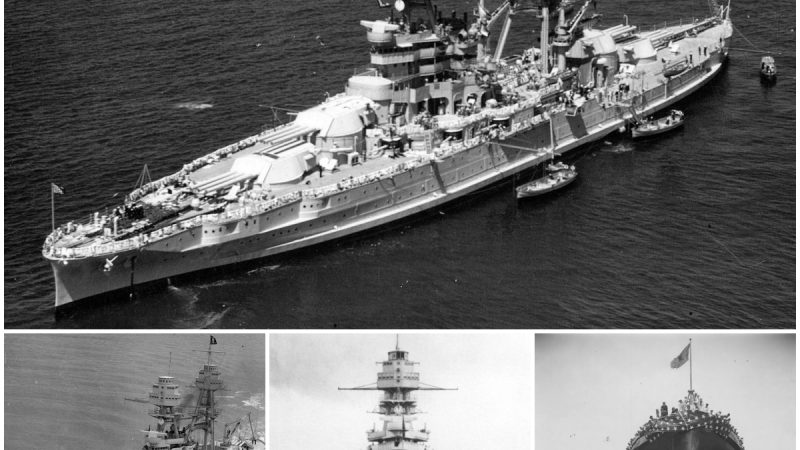Project 80: Advancements in the Russian B-2 Spirit’s Final Development Stage
Table Of Contents

Russia is currently in the advanced stages of developing its fifth-generation PAK-DA bomber, also known as Izdelie 80.
The Izdelie 80: Finalizing the Design
British authorities have recently disclosed significant progress in the development of the Russian Izdelie 80 bomber. According to James Heappey, the British Armaments Secretary, the prototype is nearing completion.
Russia currently operates a fleet of strategic bombers, including the Tu-95, Tu-22, and Tu-160, complemented by missile carriers. The Izdelie 80 represents a substantial leap forward as a next-generation stealth bomber for the Russian Aerospace Forces (VKS).
As per Russian media reports, the world might catch its first glimpse of the PAK-DA in the coming years, possibly by the end of 2025. The Tupolev company is spearheading the development of this promising aircraft, intended to replace the existing Tu-160 and Tu-22M3.
Izdelie 80: A Game-Changer for Russia
One of the most eagerly anticipated features of the Izdelie 80 is its incorporation of stealth technology, addressing the current issue of Russian strategic aviation being easily detectable by radar. American bombers, like the B-2, utilize stealth technology for the same reason.
The future Izdelie 80 will boast subsonic speed, twin engines, and a remarkable range of up to 15,000 km. Russian media outlets have highlighted potential advantages that the Russian stealth bomber could have over its American counterpart, particularly in terms of weaponry.

Speculation abounds that the Izdelie 80 might be equipped with hypersonic weapons, a capability the United States is still in the process of developing.
Weapons and Capabilities of the PAK-DA
The PAK-DA bomber will need to carry various weapon systems, including conventional and nuclear munitions. Precise details about these systems remain undisclosed as the PAK-DA’s development continues.
The PAK-DA is expected to possess a low radar cross-section, making it challenging to detect by enemy radar systems. This characteristic would enable it to penetrate adversary territory and deliver its payload with minimal risk of detection or interception.
PAK-DA Equipment and Performance
With its stealthy design, the PAK-DA is poised to excel in modern aerial combat. Many of its technical specifications are classified, but some details have surfaced through various sources.
The PAK-DA will employ advanced cloaking technology to reduce its radar detectability, facilitating its entry into enemy airspace with a reduced risk of detection. Additionally, the PAK-DA will feature cutting-edge electronic warfare technology to disrupt enemy communications and air defense systems.
While the PAK-DA’s speed is subsonic, it boasts an intercontinental range, capable of flying up to 12,000 km without refueling. This extensive range enables it to undertake global strike missions.
Regarding weaponry, the PAK-DA is expected to carry an array of conventional and nuclear weapons, potentially including cruise missiles, precision-guided bombs, and future hypersonic weapons.
Next Steps for the PAK-DA
Despite nearing completion, the PAK-DA still faces rigorous testing and evaluation phases. After constructing the first prototype, comprehensive flight tests will be conducted to ensure the aircraft meets all performance specifications and can operate safely and effectively in combat scenarios.
The development of the PAK-DA represents a significant milestone for the Russian Aerospace Forces and has the potential to reshape the global balance of strategic power. However, its ultimate impact on global military aviation will remain speculative until it becomes fully operational and deployed.
FAQs:
- What is the Izdelie 80 or PAK-DA, and who is developing it?
- The Izdelie 80, also known as the PAK-DA, is an advanced fifth-generation bomber developed by Russia. The Tupolev company, a prominent Russian aircraft manufacturer, is overseeing the project. Its aim is to replace the current Tu-160 and Tu-22M3 bombers in the Russian fleet.
- What is the expected date for the completion of the Izdelie 80?
- The exact completion date of the Izdelie 80 or PAK-DA has not been confirmed. However, Russian media sources suggest that a first glimpse of the aircraft may be seen in the next few years, possibly by the end of 2025.
- What significant advances does the Izdelie 80 present?
- The Izdelie 80 incorporates important technological advances, including stealth technology to evade radar detection. It is expected to have subsonic speed, twin engines, and an impressive range of up to 15,000 km.
- What kind of weaponry will the PAK-DA carry?
- While exact capabilities are unknown, the PAK-DA is expected to carry various weapons, both conventional and nuclear, potentially including cruise missiles, precision-guided bombs, and potentially hypersonic weapons in the future.
- What are the next steps in the development of the PAK-DA?
- After constructing the first prototype of the PAK-DA, rigorous flight tests will be conducted to ensure the aircraft meets performance specifications and can operate effectively in combat. Despite nearing completion, there are still multiple testing and evaluation stages before it becomes fully operational and deployed.
Hits: 6








